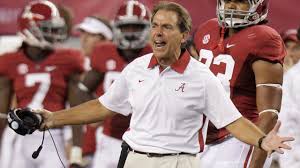On Sports: College Recruits – Beware of Negative Recruiting

by Reagan Yates ’20
For 17 and 18 year olds across the country, choosing which college to attend is a huge life decision. From distance-to-home to the feel of the campus, there is a lot to consider to make the best choice. But those things are only minor considerations for those few select students that plan on competing in college athletics.
Incoming college recruits have to see their way through professional adult coaches giving them misleading information about the place they might choose to be for the next four years. And the wrong decision could lead to a lot of disappointment.
When college coaches feed false or misleading information about their school to recruits, it is known as negative recruiting. Negative recruiting is a newer term and, as the name suggests, many agree that it is highly unprofessional, unfair, and wrong. If a recruit does not see through negative recruiting and believes what they are told, they could end up at a school they dislike and on a team where they do nothing more than sit on the bench.
The main way that coaches negatively recruit athletes is through giving false statistics about the school or the team that appeal to the athlete. For example, a college coach might tell an incoming track athlete that all of the team’s current 100 meter specialists are graduating and that the athlete would get to compete in every meet from day one of freshmen year. This information could be the deciding factor of why a student chooses that school; unfortunately, he won’t find out until he gets there that he is one of many 100 meter specialists the team already has and he will not get to compete at all for a couple years.
In addition to giving young recruits false information about their school, college coaches will also give false facts about other schools trying to recruit that athlete. For example, take that same 100 meter track recruit as earlier. A college coach might tell him that the rival college he is being recruited by has an awful sprinting coach and that all the athletes from that team hate it there. While the reality may be that the other school has a great coach and awesome team atmosphere. If this recruit cannot see through the coach’s act of negative recruiting, he will end up crossing a great school off his list.
Ideally, college coaches who use negative recruiting will see how a young athlete’s success should be more important than their own personal agenda. Until then, it’s up to the recruits to not just take the word of the coach, but to do some research by checking rosters and stats from previous years to see if everything the coach says is accurate.